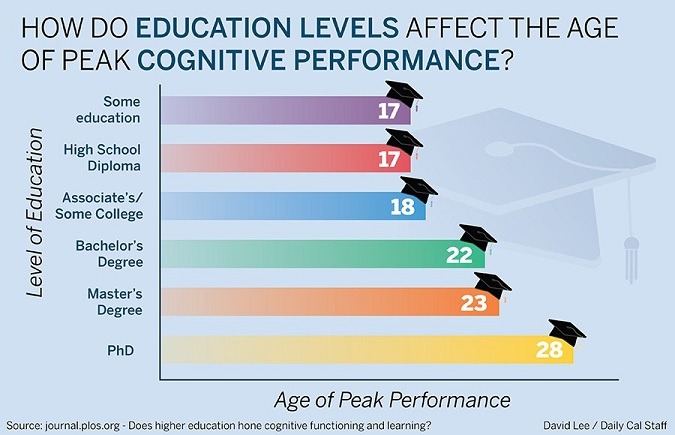Posts Tagged ‘higher-education’
Large study highlights the cognitive enhancement value of both higher education and lifelong learning
_______ UC Berkeley study links cognitive longevity to higher education (The Daily Californian): “A study led by campus researchers found that higher levels of education are linked to later ages of peak cognitive performance…The team was able to use anonymous data gathered from almost 200,000 subscribers to Lumosity, an online cognitive training program, whose…
Read More20 Reasons Why Virtual Conferences Are the Future
Conferences have long been a staple of the professional calendar. Now, after a recession that has slashed travel expenditure, the landscape for events is changing. Sophisticated digital platforms are enabling virtual environments that simulate the benefits of real events, and attendees are beginning to shift to accessing subject matter experts and industry networking online. But…
Read MoreThe brain virtues of physical exercise
Dr. Adrian Preda, our newest Expert Contributor, writes today the first in a series of thought-provoking articles, challenging us to think about physical exercise as the best and most unappreciated form of “brain exercise”. A superb article. And one thing is clear, he points out: “the brain really likes it when it’s asked to be…
Read MoreLooking inside the Brain: is my Brain Fit?
Today we have the pleasure to have Dr. Pascale Michelon, one of our new Expert Contributors, write her first article here. Enjoy, and please comment so we hear your thoughts and engage in a nice conversation. (Btw, if you notice some similarity between the colors in the fMRI scan below and the look & feel…
Read MoreBrain Fitness @ Education, Training, Health events
In what category does Brain Fitness fit? Education, Productivity and Training, Health? Most of the interest so far has come from a Healthy Aging angle, but we are starting to see broader interest, as in the events below. After all, isn’t working on our brains relevant to all those markets?. 2 busy weeks: I am…
Read MoreQuick brain game to test the limits of your peripheral vision
Test your peripheral vision, visual short-term memory and hand-eye coordination. Another brain teaser for you.
Read More

